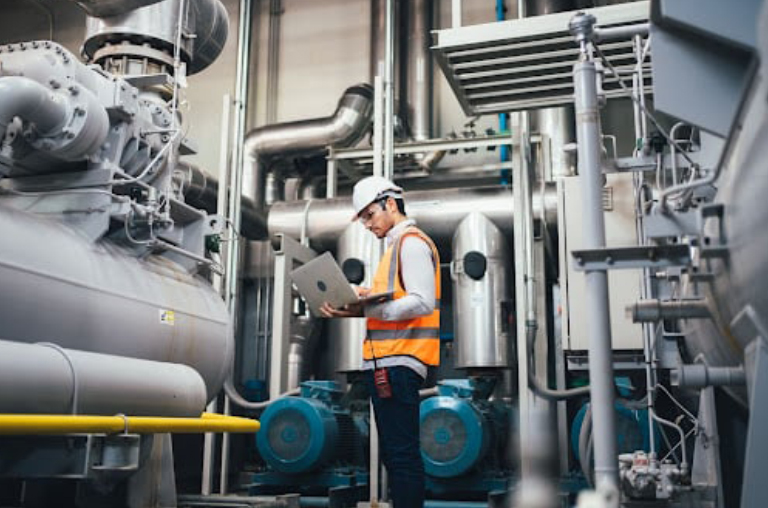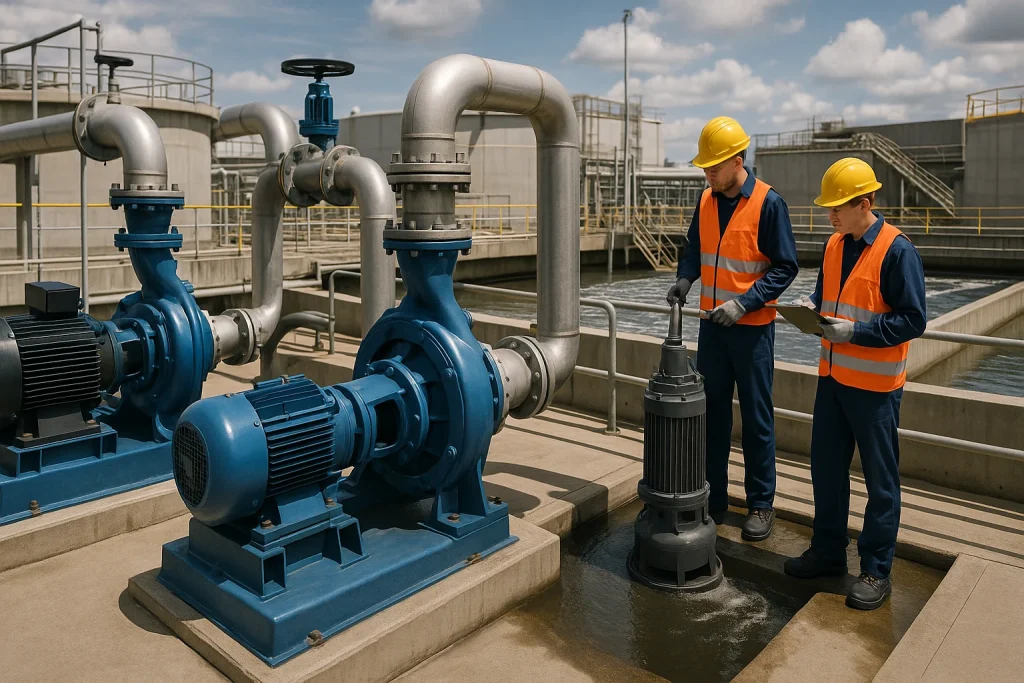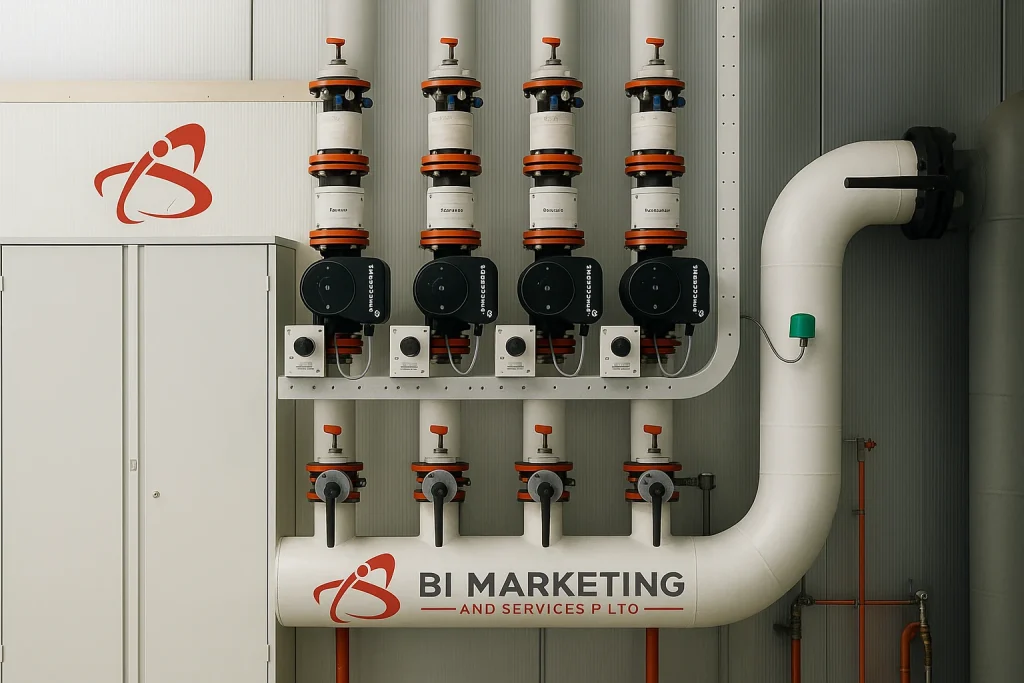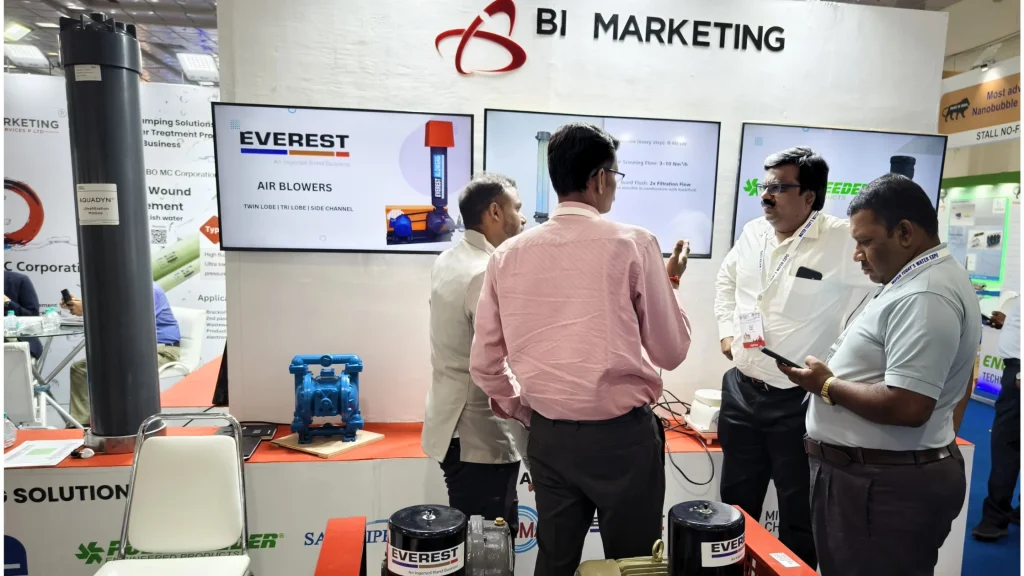Choosing the Best Wastewater Treatment Pumps for Industrial & Municipal Systems
When it comes to keeping your treatment plant running smoothly, nothing is more essential than selecting the best wastewater treatment pumps for your setup. Whether you’re operating an industrial ETP, managing a commercial STP, or overseeing a municipal sewage facility, the right pump makes all the difference. The best wastewater treatment pumps ensure minimal downtime, lower energy consumption, and long-term performance—without constant maintenance headaches.
In this blog, we’ll cover:
The most reliable types of pumps used in industrial and municipal systems
Real-world questions facility managers often ask
Expert insights on choosing the right pump for your operation

Why Choosing the Right Wastewater Pump Matters
Wastewater isn’t just water—it often contains solids, chemicals, and sludge. Your pump needs to handle varying flow rates, prevent clogging, and remain energy-efficient even under tough conditions. A poor choice can lead to frequent breakdowns, increased energy bills, and reduced treatment performance.
For both industrial wastewater treatment plants and municipal STPs, choosing the right pump improves:
- Operational reliability
- Maintenance cycles
- Effluent discharge quality
- Power consumption
Top Wastewater Treatment Pumps for Industrial & Municipal Applications
Let’s dive into the best types of wastewater treatment pumps trusted across India and globally:
1. Submersible Pumps
These are installed underwater and are widely used in sewage pumping stations. Their sealed design keeps them quiet and low-maintenance.
Best For:
- Raw sewage
- Sludge pumping
- Pumping stations with limited space
2. Centrifugal Pumps
These are surface-mounted and work best when handling low-viscosity liquids. They’re common in clarifier systems, treated water transfer, and industrial rinsing systems.
Best For:
- Continuous flow
- Treated water
- Low-solid wastewater
3. Grinder Pumps
These pumps come with blades to grind solid waste into slurry, reducing the risk of clogs in pipelines—perfect for areas where solid-heavy wastewater is common.
Best For:
- Municipal STPs
- Commercial buildings
- Waste-heavy sewage
4. Progressive Cavity Pumps
These are built for thick sludges and viscous wastewater. Their smooth, non-pulsating flow makes them ideal for sludge recirculation.
Best For:
- Thick sludge
- Dewatering
- Sludge digestion units
5. Screw Pumps
Large, slow-moving pumps used in inlet chambers and stormwater systems. They’re energy-efficient and can handle large volumes with minimal wear.
Best For:
- Raw influent
- High-flow, low-head conditions
- Open-channel wastewater transfer

Essential Components That Improve Pump System Efficiency
Apart from the pump itself, supporting components are crucial. At BI Marketing and Services, we offer a complete range of solutions including:
- Grundfos Pumps – Trusted for energy-saving, long-life performance
- Mann + Hummel UF Membranes – High-quality ultrafiltration for polishing treated water
- Mitsubishi MBR Membranes – Space-efficient, high-performing MBR systems
- Fujimac Air Pumps – Reliable aeration for biological treatment processes
- Toyobo MC Membranes – Ideal for advanced membrane-based STPs
- EVEREST Air Blowers – High-efficiency blowers for oxygen supply and sludge treatment
These components together ensure your system runs smoother, lasts longer, and stays compliant.
Useful Internal Resources:
- STP Pump Maintenance Tips
- Grundfos Pump Installation & AMC Services
- Industrial ETP Design & Service
Ready to Choose the Right Pump?
The best wastewater treatment pumps are the ones that match your plant’s size, flow conditions, and operating goals. Don’t make a guess—work with a team that knows the science behind pump performance.
At BI Marketing and Services, we don’t just sell pumps—we build systems that last. From Grundfos Pumps to MBR membranes, air blowers, and expert service, we help you create a wastewater treatment system that runs efficiently and stays compliant.
👉 Looking for help choosing the right pump or planning your STP/ETP upgrade?
Contact BI Marketing and Services today for technical guidance and genuine product support.
Pumps from Your Trusted Partner – BI Marketing!
Contact us today for expert guidance and get a free quote on the best wastewater treatment pumps. Trust BI Marketing – your reliable partner for efficient water solutions!


